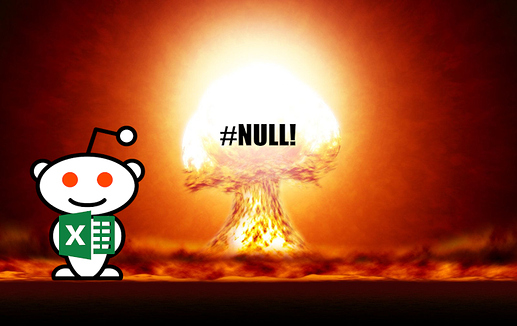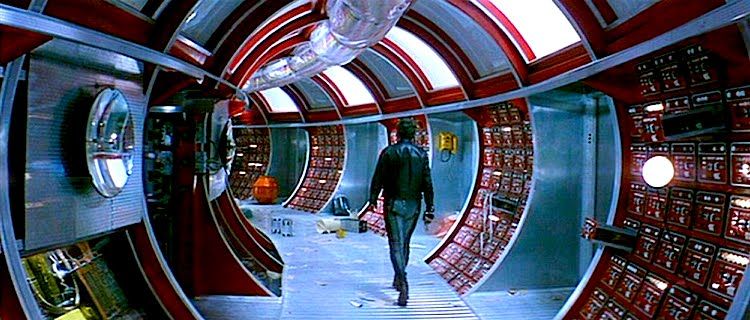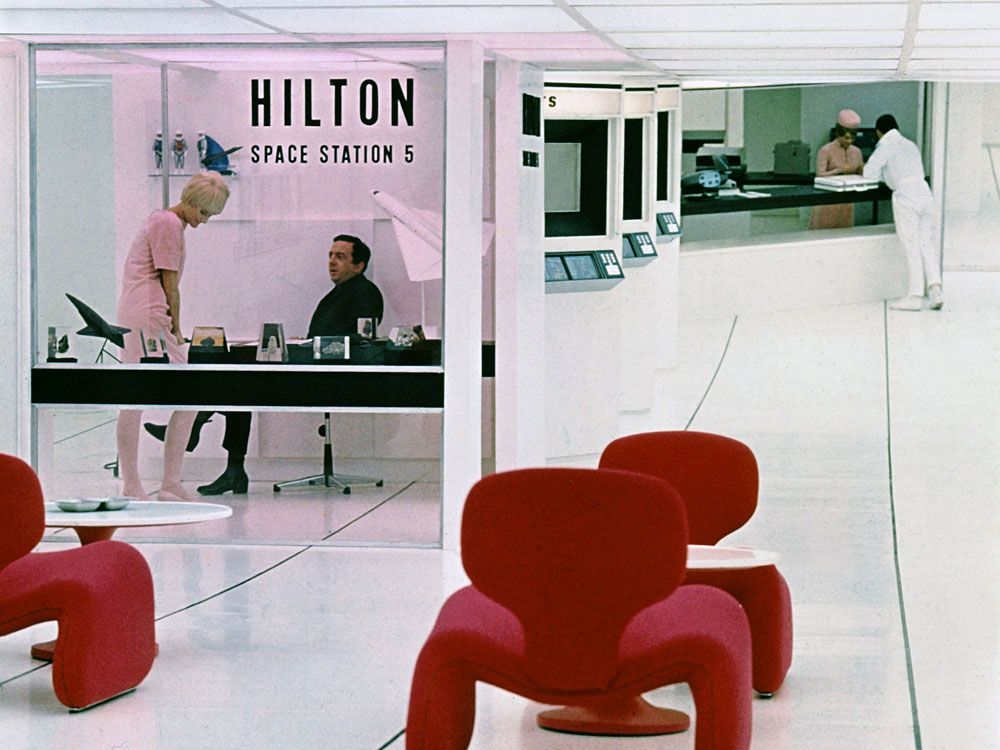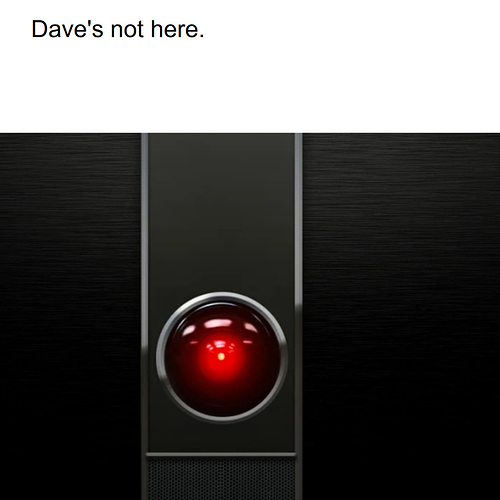The Professional’s Guide To Interstellar Espionage.
[v1.1 revision notes: substantially re-ordered]
Preface
“For every expert, there is an equal and opposite expert.” - Clarke’s Fourth Law
Amateurs think strategy, professionals think logistics. Prosperous Universe is a game using economics as a tool to build logistical solutions to further interstellar colonial expansion.
Even if you’re not especially well-steeped in economics, if you understand enough of the concepts, the game is designed in such a way to put you on an even playing field with people who are.
That’s why it’s set in a science-fiction universe, interplanetary trade economics can be explained quite easily because it’s a singular application of a number of concepts from economics.
The futurist Isaac Arthur already did a video about it, while a lot of the specific information in this video is “outdated” in terms of the game, the overall concepts are not.
I have found it most effective, please do before going further:
Now with that in the background, and presuming you actually read the instructions, in much the same way you usually don’t need to use that much probability calculus to play D&D,
you really don’t need to use that much whatever complex math necessary to figure how a minimax solution will work to play PrUn once you learn how to use “minimax solution” in a sentence.

As an example, you can learn how to trade in stocks and sabotage the stock market by first deploying a “fire and forget” solution that involves making your base as efficient as possible. Here’s a bang-up sales presentation by Tony Stark that ties it all together.
There’s a lot of econ nerds here and most of ‘em are speaking in specialized argot. And bitcoin. Clearly, there’s fun to be had.
As we professional nerds know, some spooks are categorically not nice people, quite capable of doing categorically not nice things if only for “grins ‘n’ giggles.”
My actual knowledge about economics is the video, what my friend explained to me about economics years ago, and naturally, the internet. However, I’m also quite the s-f fan and here’s my favorite writer, in his current meta-existence.
My read on PrUn at the time of this writing is a number of non-state bad actors are using spreadsheets and other metagame methods to rig unregulated commodity stock exchanges associated with ill-designed planetary colonization projects to maximize their advantage from arriving first on said planets.
That’s certainly a most uncouth assessment and I’m quite certain I’ve not endeared myself to a lot of people, yet, from my perspective:
I’ve noticed quite a few “interesting” things here and they’ve given me a disturbingly familiar yet oddly comforting feeling that yet again, something, somewhere is about to go monumentally off the rails.
Call it a “bad hunch.” After all, I read a lot of science fiction.
Since there are no weapons available (in spite of the means to produce them) and I’m a lowly gas miner, (ostensibly), in the event that derailment causes some governing entity somewhere to raise her quite understandably and usually crabby head and send in the marines on a mass “asset seizure to contain malevolent fiscal actions perpetrated by various non-state actors” - well, I’m completely boned.

It could cause a fetching yet lethal terrorist to appear seconds before the unpleasantly spontaneous leaking of my bodily fluid. Buzzkill.
A K2 civilization sees what’s happening and where’s it going, runs a real-time 3D AI analysis because they can, and decide to load up the mass drivers with their waste products, point them in this general direction and let rip.
Any intelligence professional, or any number of intelligent professionals understand: where spreadsheets, unread instructions and groupthink goes, unbridled disaster tends to follow.
The important thing is that it happens somewhere else to someone else. Whether or not it was an accident or made to look like an accident is two different things. So ist das Liebe, ja?
That is their opportunity for them to learn and grow. Perhaps if they had read the instructions, and modified their thinking on economics rather than the game pieces, that wouldn’t have happened to them.
It’s not called The Nice Idea To Think About Unintended Consequences While You Do Something You Were Explicitly Told Not To Do. It’s immutable, hence the name, The Law Of Unintended Consequences. Here’s an example:
The purpose of the exercise is not to defeat the purpose of the exercise. Ask Joh Fredersen, he will tell you. See the stock tickers and minion reading them in the background?
He’s got enough currency to not pay this guy to do his tech support because it’s included in the r&d budget.
The worst he had to deal with his kid falling in love with a revolutionary, he sent in a robot duplicate to put a stop to that and everything still worked out in the end.
With such sterling example long since provided, let us continue.
I.
“First, do nothing.” - Zen master Evil Dave I
Pay very special attention to the yelling man in the three piece suit, a lot of what’s he’s ranting about is relevant to the situation at hand:
To establish bona fides, I was indeed involved in that intractably nasty business known as interstellar warfare, as “J.F. Cortazar” in league with the guild known as SPuD (Scottish Penguins United For Death) on the Alpha server of Astro Empires years ago.
There was an incredibly illuminating player’s guide written by a Hungarian math nerd by the name of Zoltan that’s sadly no longer available.
If one made the effort to understand it (he stated English wasn’t his first language but it wasn’t that difficult to understand), one was shown the “secret science” of the game: base efficiency.
Profitability follows efficient base design, efficient base design returns the most amount of yield from available resources used per square unit of area.
In warfare, this is expressed as a base that quickly produces a lethal amount and type of ship but itself is of such low value that attacking it is a net negative because of the cost incurred of going through the base’s defenses.
Every successful attack (resulting in the ratio 2:1) from those bases is a net positive in terms of generated debris, raid value, and that diabetes and cavity inducing icing on the cake, seized income percentage.
Rather than waste time with trying to make this type of planet with that type of base or even try to get the tenth planet free, all one had to do was find one metal planet, one metal moon, and seven far flung asteroids with the right numbers and perform the following procedure:
Max out the surface area so each base can do as much production and research as possible first, if there’s remaining area, trade routes (and those are linked to far away “friendlies.”) Set your queues to research defensive tech first because it’s the most expensive and takes the longest time. Then spend all your remaining money on fleet building.
That way, when the “Starfleet” guild decides to use one of your bases for a “routine training operation,” you can then destroy that ensign’s fleet and have Starfleet command all up your inbox while you raid bases with ships they didn’t expect you to have because they were convinced you didn’t have the money to make them.
Somebody on a command chain saw a base with a low overall value, ran a battlecalc, things went sideways, escalated, my guild went “buck wild on erry’body,” making matters exponential orders worse and three consecutive server wars eventually broke out.
Good times. I got thrown out for taking a slice off a 40B black bag job that used my fleet for bait. And that is all need be said about that.
Let’s review the chief takeaway from my experiences because every professional knows and the video confirms, interstellar warfare really is interstellar trade’s evil twin:
Just because you can, it doesn’t mean you should.
Just because everybody else is doing screwball things with spreadsheets it doesn’t mean you have to. Start on the recommended planet for your package with the recommended setup, for metallurgists, that resembles this:
2 HABitations
1 COLlector
Very important note: per tutorial, that COL should be an EXTractor, but I borked the resources accidentally building a Basic Material Plant and while I managed a 14K sale of EXOskeletons, I really didn’t need the building.
Oops? Maybe, maybe not. Why? Because I made the mistake and learned from it. I overestimated my abilities with using Basic Materials Plant because yes, I can do a lot of things with it, none of them were immediately applicable to what I was actually doing.
This mistake isn’t going to significantly set me back, even though I’ve got the “wrong” building erected, I’m on the recommended planet and I’m going need that gas anyway because I know just enough to understand that the money in my ledger isn’t the money I really need to be “concerned” about.
However did I figure that out? @molp Oh, look what I found in the chat room!

Information is a commodity and nothing sells quite like social engineering.
And I’ve got that entrepreneurial Yankee defense contractor spirit!
Let’s continue:
You will have enough left over to build another building - don’t! - and cash left over for basic consumables. Now if you go to the base designer and lay this out, you’ll find this what you need for 100% worker satisfaction in terms of resource cost per worker.
Drinking Water: 2.00
RATions: 2.00
OVEralls: 0.25
COFfee: 0.25
PADded Overalls: 0.25
From what I’ve gathered, a lot of people compute their estimated returns against this number rather than divide those costs by 60, the total required area, to get the resource cost per unit of square area.
DW: 0.33
RAT: 0.33
OVE: .0041
COF: .0041
PAD: .0041
This is the operational cost for the base. You want the base to be efficient by showing a return from the least amount of resources used.
It’s lower than the cost for the worker because it regards the worker as a resource, rather than resource that requires additional housing.
It is computed as a worker cost because workers use resources and area, sleep counts as use.
Better to pay for the whole kith and kaboodle, with the lowest amount possible, than be forced to forsake efficiency to unnecessarily charge yourself rent.
If you didn’t pay for the resources used in the HAB at its lowest possible cost, you must pay for it at its highest possible return. Entropy always wins and can’t be cheated with a spreadsheet.
Efficiency doesn’t cost that much anyway. Spend the fraction. That’s what bitcoin is designed to do. We are here to move the ships efficiently from point a to point b and maintain a nice functional status for everybody.
“All anxieties, quelled.”
I’d rather have that than what happened the last time somebody came up with a technologically sophisticated way to reduce worker costs. Look how well that worked out for him:
On your base panel is a tab marked production, click it to bring up another panel that shows you what buildings are available to produce and what is in their queue. Click on new order.
Notice that if your planet has a Chamber of Global Commerce, your production line condition is 100% and your workers are 100% satisfied you’re operating at 110% efficiency for an operational cost of fractions of your planet’s coupons. Select 20 for the amount of units.
In this instance, 60 units of Oxygen will result at low market value 105.30, results in 6,301, divide that by 60 (total unit of area required to produce it) and that’s 105 in coupon per square unit of area.
If by virtue of simply following instructions and doing things in an efficient manner, earns a “profit,” then any further addition to this system that follows this logic follows suit.
If I add an EXT, I add workers but there’s housing already available. My new resource cost per worker
DW: 4.00
RAT: 4.00
OVE: .55
COF: .55
PAD: .22
Now, resource cost per area
DW: .052
RAT: .052
OVE: .064
COF: .064
PAD: .003
Notice that while the resource “cost” doubled, the actual operational cost rose at a far slower rate. Let’s presume I sell another 60 units of Oxygen at the same price for another 6,301, and I sell 60 units of LimeSTone at a price of 150 for 9,000 for a total of 21,301, divide that by the area (85) and I’ve made 250 in planet coupon per unit of square area. I can do the math back to the origin point but why?
Ultimately what does it matter? I can still be completely and efficiently wrong about all of this now and efficiently blow you up later if need be. What good is von Mises when I can simply put you on the business end of one of these?
The game is designed so 3-5 players with efficient bases can form a zaibatsu and if you’ve read enough William Gibson, you can have quite some fun with that.
In any situation where spreadsheets are involved, the individual who uses them the least with the least number of errors has a significant advantage of everybody else The tolerance range of error in space is categorically “fatal,” ranging from “loss of resource” to “loss of life.”
Da beltalowda na du xeta to fo to’re fong earth. Imalowda xeta to fo to keep putting da wrong numbers ere da wrong pelesh fo da wrong reasons - unte da tim de telling imalowda im’s fo imalowda ong gut.
Now, consider the space station is Solaris, it’s not pretty, but it’s effective given the resource cost of transporting the equipment required to build it.
Consider the space station in 2001. Because the means of producing it are considerably closer, the cost of getting them from the surface will be offset by the value derived from the other uses of the station.
It is a Hilton after all, and income can be derived from other services is provides such as vidphone booths, so it might as well make an attempt to look nice.
In either event, both of these stations are minimax solutions to the problem, and I’m going to say it upfront, this is a GUESS: economics can be modified to suit any complex operation involving a number of complex operations.
Since we’ve established efficiency is part of any solution (if not the solution in and of itself) and that solution starts at your base in terms of warfare, space colonization is first a matter of efficiently building efficient bases in a consistent and logical fashion, then using the remaining area in a similar fashion to “personalize” that configuration.
The reason for this is inherent to the unique nature of interplanetary trade economics at this current time. If you’re a playing game that is set in the future it means anything that, everything has adapted to the technology that is available.
In PrUn: It is literally twice removed from its planet of origin. First in terms of the economics to build and move the century ship that got everybody here, second, the economics of moving the resources from the century ship to the planets.
Given the absolute mission critical status of every single logistical operation, all of the involved math was obligated to follow suit. Whether or not it was based on “free trade” or “trade protectionism” is moot as all of the involved parties were and still are non-state actors and both of those of those doctrines are based on the idea of the nation-state.
Logically whatever the economic doctrine was known in summary, it had to fulfill at least three criteria:
I. Efficient: because the problem involves specialized resource production and management while consuming large amounts of energy and resources
II. Elegant: due to the specialized natures of supply, demand, customer bases and economies of scale.
III. Responsive: due to overall scales of both projects.
Since those concepts can be expressed as numbers, based on the economic math involved, they can be seen in psuedocode for an imaginary computer as:
if move_condition_state
(EFFICENCY>=MIN_EFF and EFFICIENCY<MAX_EFF)
and move_condition_state
(ELEGANCE>=MIN_ELE and ELEGANCE<MAX_EFF)
and move_condtion_state
(RESPONSIVE>=MIN_RES and RESPONSIVE<MAX_RES)
then function move_item;
Let’s call this “fractalnomics” for the time being because the computing power and technology required to make something like this efficiently move large numbers of items from point a to point b at that point in time isn’t beyond the scope of reason.
So if we have the first two vowels and the consonant of some long lost mystic principle from the future, if we perform our own sacred ritual:

Behold the eternal wisdom of the ancient teaching and sacred lost knowledge! ERROR PREVENTION It’s not an especially difficult concept to develop economic principles with, because you’re locked into a system that requires an overall efficient use of energy. Nor is this especially difficult to program into a sophisticated computer especially considering that’s what computers are designed to do. (Philosophy, however, not so much.)
Consider the nature of the commodities that are being produced. They all require highly specialized means of production at even the most basic level: food and water.
The number of people in space is far less and grows at a far smaller rate than on Earth. Consumer demand is exclusively based on necessity, and follows a consumption pattern of the most amount and type of any commodity needed the most on a daily basis.
Prior economic models presume large numbers of consumers who consume large number of things that are cheap to produce such as food and water on Earth because the means are readily available, or large numbers of workers because large amounts of food and water are readily available because they are cheap to produce.
In space, these models are fundamentally useless and counterproductive prima facie because while we’re on a planet, it’s not Earth nor Earth-like, food and water isn’t cheap, nor are they readily available.
Moreover, there are only two types of consumers benign, who are simply purchasing the commodities as a matter of necessity and presumed bad actors, making purchases for an overall counterproductive self-interest.
The logistical math at its largest scale, presupposes a consistent use of energy to get across a large turbulent body of water on a spherical body, or fly to three points over a spherical body.
In PrUn, it is launched with one big burst of energy either from the surface of an orbiting spherical body, or from orbit around another orbiting body.
At a guess because of the nature, number and types of these errors being used in the assumptions in spreadsheet programming and the nature, number and types of errors in the actual programming, it’s not a question of a train jumping the track, it’s a “some or all” proposition.
And throw in on top of that, in-game bad actors.
II.
“The Way of the [Nerd] is found in [efficiency]. When it comes to either/or there is only the immediate choice of [efficiency.]
It is not particularly difficult. Be determined and advance.” - after Yamaoto Tsunetomo
Interstellar colonization can be abstracted out as a set of logistical solutions to a complex economic problem. Therefore a game of interstellar colonization are while they are “real-time” rival sets of logistical solutions competing to solve a complex economic problem.
Per the game’s design, each component of that solution set corresponds to the packages in the game:
Victualler: Producing agricultural products that can be used in the food industries is the foundation of every colony.
Metallurgist: Metallurgists have all the knowledge and tools necessary to extract minerals and refine them into precious metals and composites.
Carbon Farmer: Carbon farmers grow plants and extract carbon from them.
Manufacturer: Manufacturers extract atmospheric gases to produce plastics and carbon.
Constructor: Constructors know their way around building parts, from basic structural elements to complex engineering materials.
Fuel Engineer: Fuel engineers extract resources and synthesize them to different types of fuels.
This is why you’re told to not modify your packages, they’re designed to work toward solving the logistics problem as part of a cohesive whole with other people doing the other roles.
You can mix and match them to make them do what you want but only for so long because they’re designed to do a very specific thing in a very specific way.
This is also why, if you’ve been monitoring the fat cats (the ones who got here first and made full strategic - coff! - use) on the unsecured communications channel, you’ve pieced together the complaint about how certain base configurations on certain planets aren’t “profitable.”
This is because making a profit is an outdated concept. By virtue of inherent technological sophistication available and inherent complexities, profit and efficiency are one and the same. You can chose to be on the side of one or the other or if you need to sell weapons to the other two and have the means to mass produce them …
If you’ve made it thus far, I thank you for your patience and hope that I’ve provided you with some insight and reasonable entertainment.













